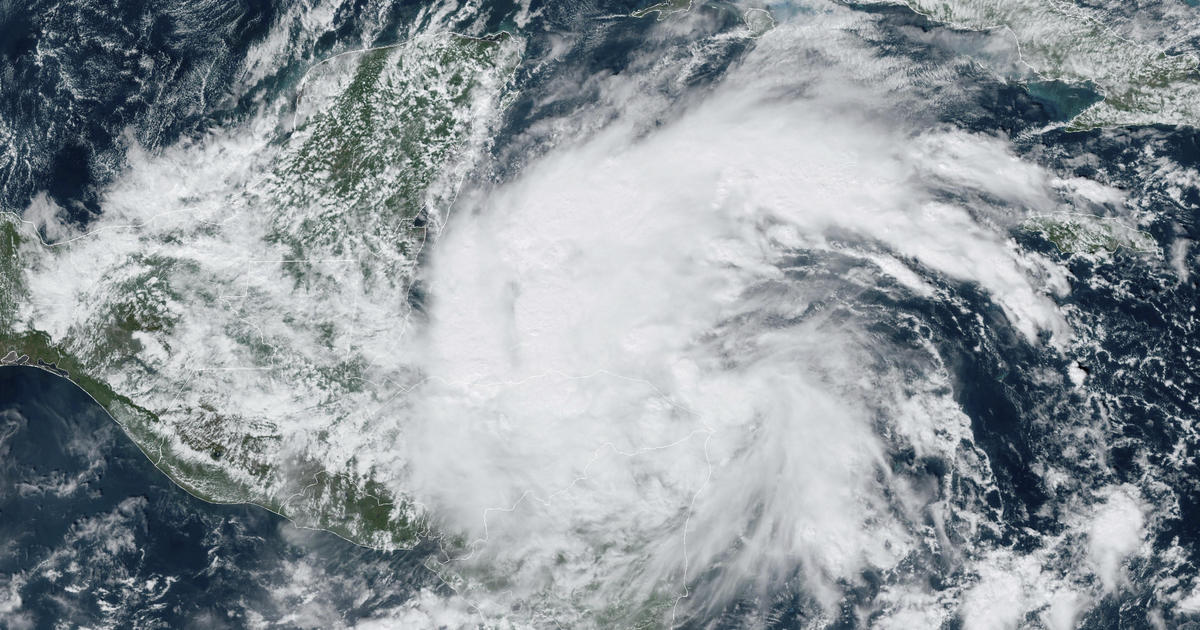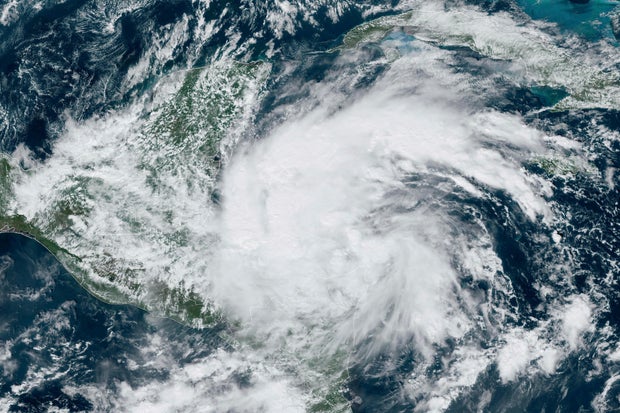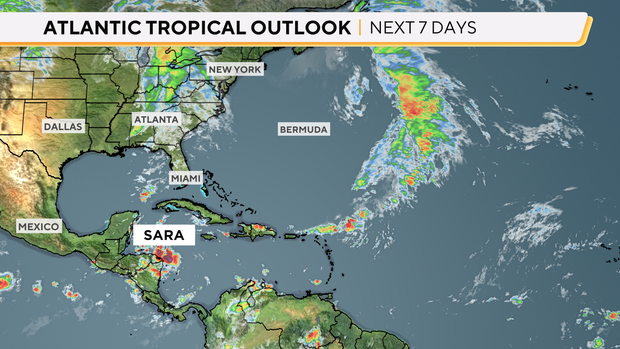Tropical Storm Sara scraped along northern Honduras’ Caribbean coast early Friday, dumping torrential rains across parts of Central America and southern Mexico after making an initial landfall overnight.
Sara hit land about 105 miles west-northwest of Cabo Gracias a Dios on the Honduras-Nicaragua border, according to the U.S. National Hurricane Center in Miami. That is near Brus Laguna, a village of about 13,000 inhabitants. There are a few other population centers nearby.
By dawn, the center said the storm was about 205 miles east-southeast of Belize City and was moving west at 9 mph, with maximum sustained winds of 50 mph.
The storm was expected to remain roughly on that path before heading out to sea again and threatening the coast of Belize.
/ AP
Sara was forecast to pass over or very near the tourist destination of Roatan off Honduras’ coast on Sunday. The storm was then expected to turn northwesterly toward Belize and the Yucatan Peninsula.
Mexican authorities warned it could cause “intense rains” over the resort-studded Yucatan Peninsula.
Sara was forecast to drop 10 to 20 inches of rain, with up to 30 inches in isolated areas in northern Honduras. In a 7 a.m. Eastern update, the hurricane center said “heavy rain, life-threatening flash flooding and mudslides” were possible through the weekend in Central America.
Sara – the 18th named storm of the 2024 Atlantic Hurricane Season – is expected to linger in the Caribbean through the weekend and slowly move into the Gulf of Mexico early next week. After that, its path is less clear. CBS News meteorologist Nikki Nolan said a lot of the models are now trending towards it dissipating either after it enters the Gulf of Mexico or over Mexico, but several still have it aiming towards Florida.
“Florida residents should closely monitor the forecast updates as they come in,” Nolan advised.
CBS News
The Atlantic Hurricane Season officially runs from June 1 until Nov. 30, with activity typically peaking between mid-August and mid-October. An average season brings 14 named storms, seven hurricanes, and three major hurricanes, according to the National Oceanic and Atmospheric Administration, which did predict the 2024 season would produce “above average” numbers.



Leave a Reply